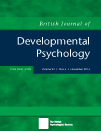Brain Basis of Religious BeliefThe Neurosciences of Religion: Meditation, Entheogens, Mysticism
By William Grassie August 9, 2011 How the Neurosciences Explain Religion or Not Religious Factors and Hippocampal Atrophy in Late Life
Owen AD, Hayward RD, Koenig HG, Steffens DC, Payne ME (2011) PLoS ONE 6(3):e17006. doi:10.1371
|
| ||||||||||||||||||||||||||||||||||||||||||||

Children prefer the supernatural
02 February 2015 by Nicholas C. DiDonato Children (and many adults) enjoy the idea of the supernatural: from wizards to Jedi to witches in Oz, children are fascinated by the idea of human beings possessing supernatural powers. Consequently, it may not be surprising if they want to encounter these kind of supernatural humans in real life. Research by Sunae Kim (Ludwig Maximilian University, Germany) and Paul Harris (Harvard University) suggests that when children can distinguish between ordinary and extraordinary information gathering, they prefer the person who has extraordinary or supernatural access to the human mind. |

Children prefer to learn from mind-readers
Sunae Kim1,* and Paul L. Harris2 Article first published online: 28 APR 2014 DOI: 10.1111/bjdp.12044 British Journal of Developmental PsychologyVolume 32, Issue 4, pages 375–387, November 2014 Kim and Harris (2014, J. Cogn. Dev.) showed that children selectively learned from an informant who produced apparently magical outcomes as compared to another informant who produced only ordinary outcomes in the domain of everyday physics. In the present study, we tested children's ability to differentiate between and selectively learn from informants who displayed either an extraordinary or an ordinary ability in the domain of everyday psychology. Prior studies have shown that children come to appreciate what is ordinarily involved in knowing the private mental states of other people. Drawing on this research, we asked whether 3- to 4- and 5- to 6-year-old children preferentially learned from an informant who knew another person's mind via either an ordinary or an extraordinary form of communication. As compared to younger children, older children were more likely to learn from the extraordinary informant. Moreover, children's ability to differentiate between the two informants was a better predictor of their learning from the extraordinary informant than age. We discuss the findings in the light of prior work on selective learning, children's ideas about prayer and their understanding of impossibility. |
